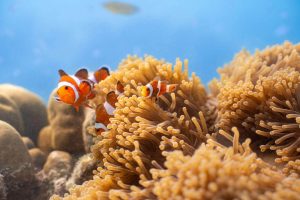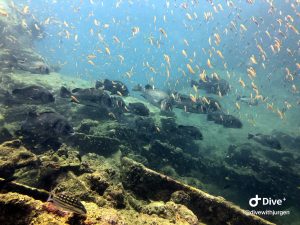Coral reefs are the rainforests of the sea—bursting with life, color, and diversity. But beneath their beauty lies a harsh reality: they’re under attack from an unexpected source—sunscreen. Each year, thousands of tons of sunscreen chemicals wash into the ocean, threatening the delicate balance of marine ecosystems.
This isn’t just a diver’s concern. Whether you’re snorkeling, swimming, or simply sunbathing on a tropical beach, the sunscreen you wear has a ripple effect on the ocean. At ScubaLov and Earthsong, we’re committed to preserving the underwater world, and we believe everyone, diver or not, has a role to play. Let’s unpack why your sunscreen matters and how making eco-friendly choices can protect these underwater treasures for everyone to enjoy.
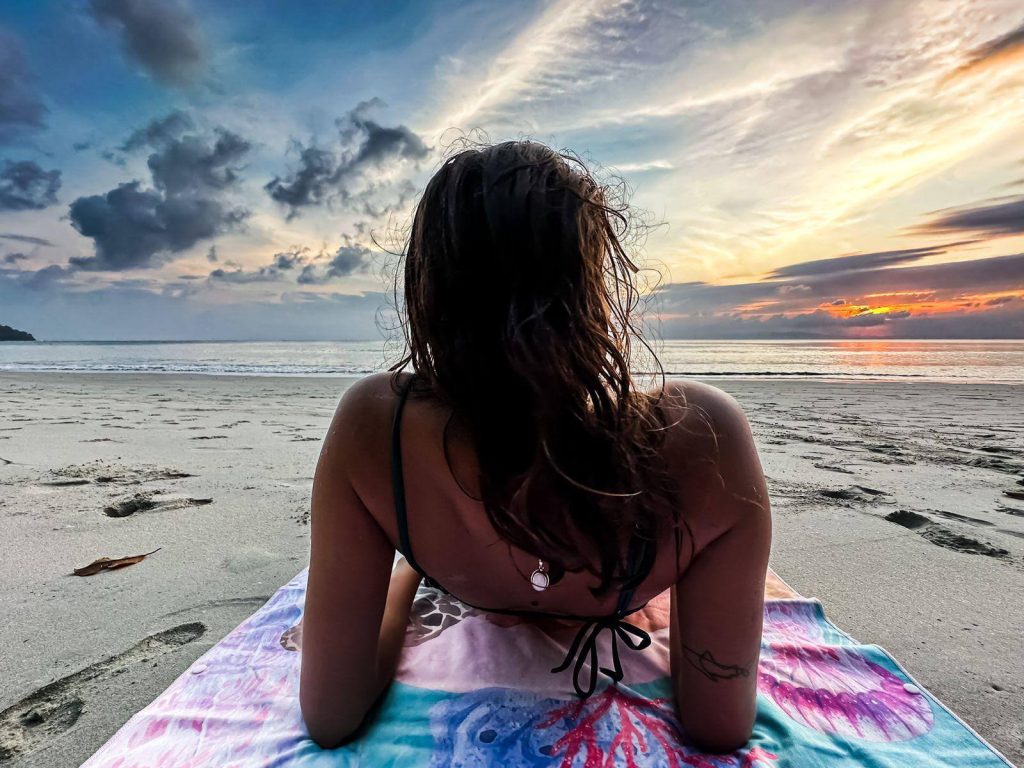
What Makes Sunscreens Harmful to Coral Reefs?
Coral reefs may look like rock formations, but they’re living organisms that play a vital role in marine ecosystems. The problem? Many common sunscreens contain chemicals that are downright toxic to corals.
- Oxybenzone and Octinoxate are the primary culprits, causing coral bleaching by damaging coral DNA and disrupting growth.
- Butylparaben and 4-Methylbenzylidene Camphor interfere with photosynthesis and coral development.
- Even nano-sized particles of Titanium Dioxide and Zinc Oxide, often marketed as “natural,” can harm marine life when they break down.
The result? Corals lose their vibrant colors, become vulnerable to disease, and, ultimately, die.
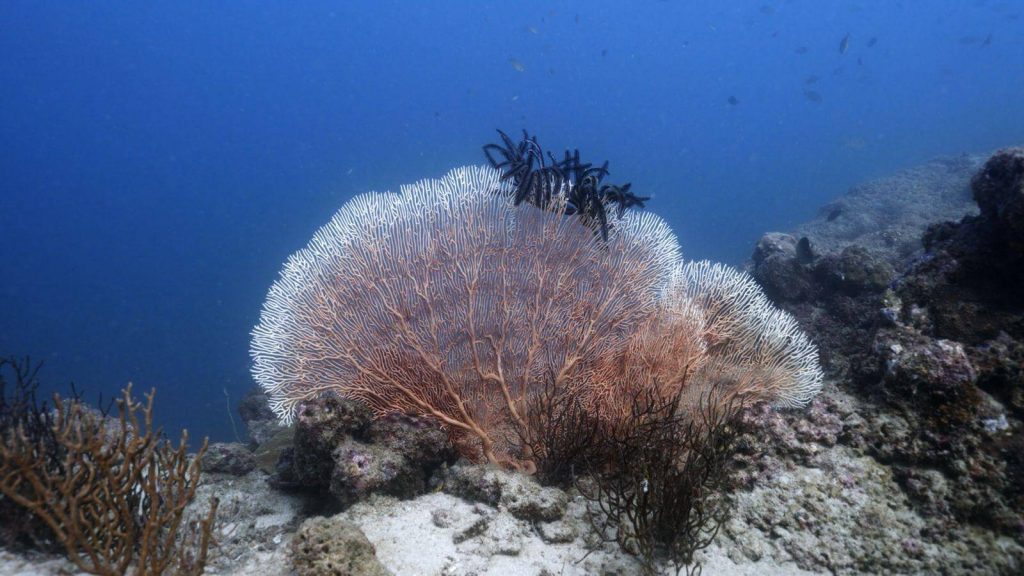
The Ripple Effect: It’s Not Just About Corals
When corals suffer, entire ecosystems are at risk. Coral reefs are home to 25% of all marine species, including fish, crustaceans, and invertebrates. Their decline threatens marine biodiversity and the livelihoods of millions of people worldwide who depend on the ocean for food, tourism, and coastal protection. And here’s the kicker—these harmful chemicals don’t just enter the ocean when you’re swimming. They’re also rinsed off in showers and make their way into waterways, eventually reaching the sea!
Diver or Not: Why You Should Care
As divers, we’re deeply connected to the ocean. Every dive is a chance to explore an alien world, and it’s up to us to protect it. But the impact of harmful sunscreens isn’t limited to diving—it affects everyone who enjoys the ocean. We share the water with incredible marine life, and the health of coral reefs directly influences the underwater experiences we treasure. Healthy reefs mean vibrant marine ecosystems, better visibility, and thriving biodiversity. If we don’t act, we risk losing the very magic that draws us to the water.
For non-divers, coral reefs still matter. Reefs support global fisheries, protect coastal communities from storms, and play a critical role in oxygen production. Their health affects everyone, even those who’ve never set foot in the ocean. Snorkelers, swimmers, and beachgoers can unknowingly contribute to reef damage when they wear harmful sunscreens into the water.
By choosing reef-safe sunscreens or opting for sun-protective clothing, both divers and non-divers can reduce their impact on these delicate ecosystems. Whether you’re beneath the waves or relaxing on the shore, your actions make a difference.
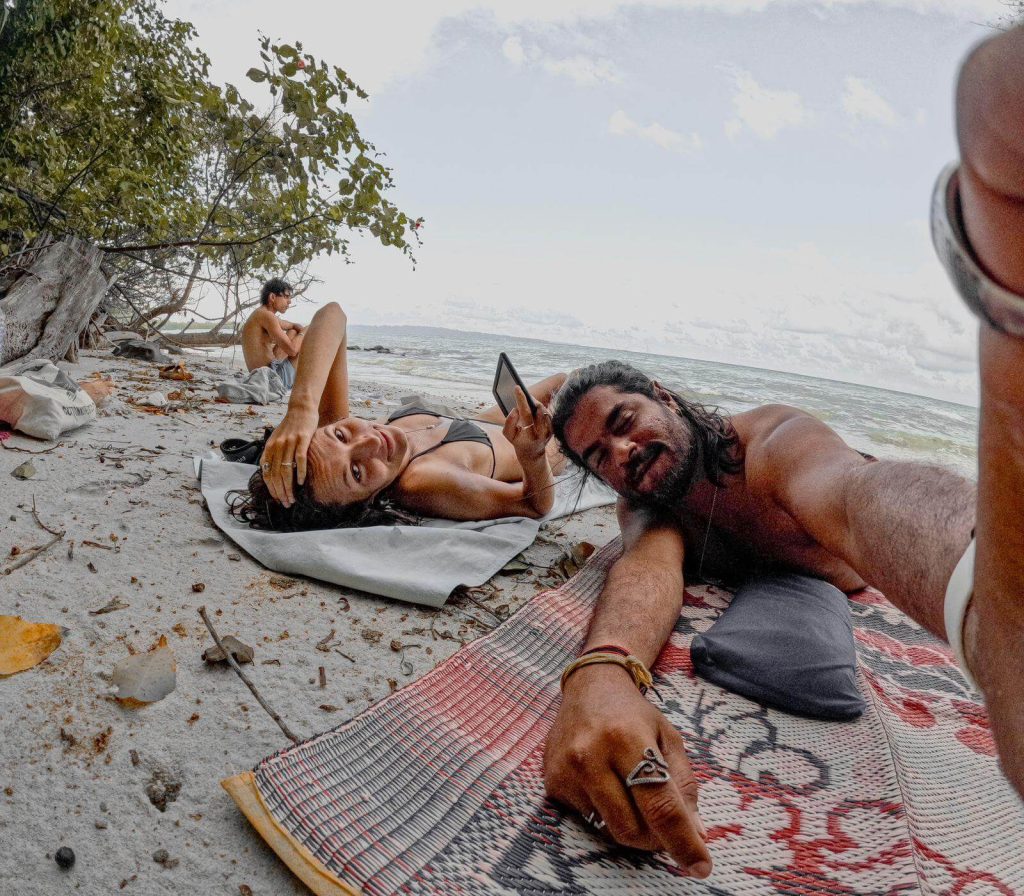
The Solution: Go Reef-Safe
Switching to a reef-safe sunscreen is easier than ever. Look for sunscreens that:
- Use non-nano zinc oxide or titanium dioxide as active ingredients. These mineral-based formulas sit on the skin’s surface, making them safer for marine life.
- Are free from harmful chemicals like oxybenzone, octinoxate, and parabens.
Better yet, consider reducing your reliance on sunscreen altogether by wearing sun-protective clothing. Rash guards, hats, and lightweight long-sleeved shirts are excellent alternatives that keep you covered without introducing chemicals into the water.
Our Recommendations
If you are planning to pack a reef-safe sunscreen for your trip the Andaman Islands, here are some of our recommendations. Fret not, these are tried and tested!
- Dot & Key Reef Safe Sunblock Mineral Sunscreen Lotion SPF 40: This sunscreen offers broad-spectrum protection using non-nano zinc oxide, making it safe for coral reefs. It’s free from oxybenzone and octinoxate, which are harmful to marine life. Suitable for all skin types, it provides SPF 40 protection.
- Badger SPF 40 Sport Mineral Sunscreen: This sunscreen is made with 98% organic ingredients and uses non-nano zinc oxide as the active ingredient. It’s water-resistant and biodegradable, ensuring minimal environmental impact
- Banana Boat Simply Protect SPF 50+ Sunscreen Spray, NOT LOTION!: This sunscreen spray is free from harmful chemicals like oxybenzone and octinoxate, which are known to cause coral bleaching. These sunscreens also provide broad-spectrum protection against UVA and UVB rays, ensuring your skin stays safe while keeping marine life in mind.
We highly recommend reading the label of the product before you buy to ensure that you are choosing a reef-safe product!
Your Ocean-Friendly Dive Kit Starts Here
Protecting coral reefs isn’t just about global efforts—it’s about small, everyday choices made by individuals like you. Choosing a reef-safe sunscreen or covering up might feel like a minor change, but when every ocean lover joins in, the collective impact is huge. By taking this step, you’re contributing to the health of marine ecosystems, supporting sustainable tourism, and preserving the incredible biodiversity that makes diving so magical.
Ready to make the switch? Start with reef-safe sunscreen and sun-protective clothing, and join us in setting an example for responsible diving. The ocean needs heroes—and it starts with small, conscious choices. Let’s keep the reefs vibrant, the fish happy, and the underwater world thriving. Visit ScubaLov and ask us about Earthsong too, to learn more about our dive and marine education programs, and join us in making a difference, one dive at a time.


